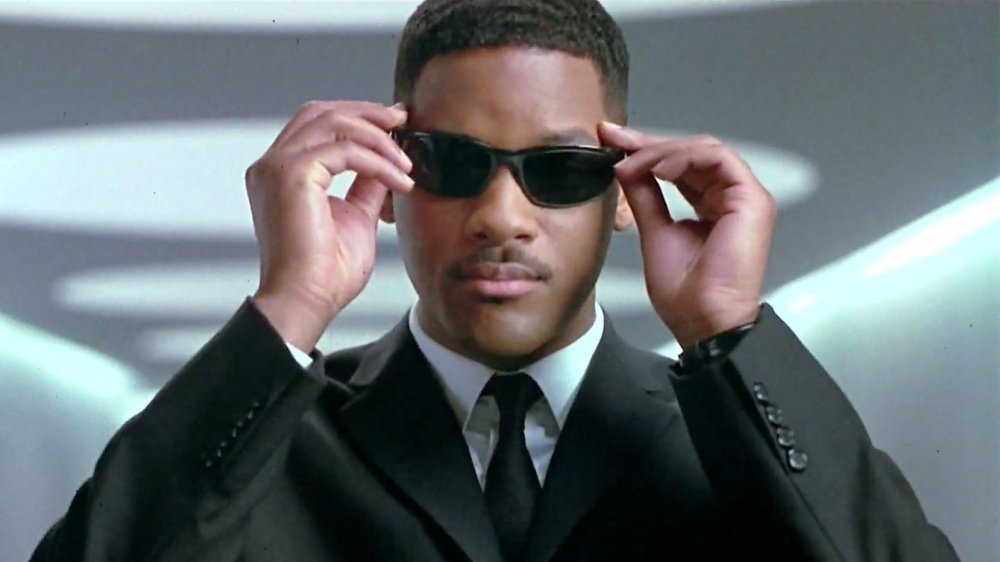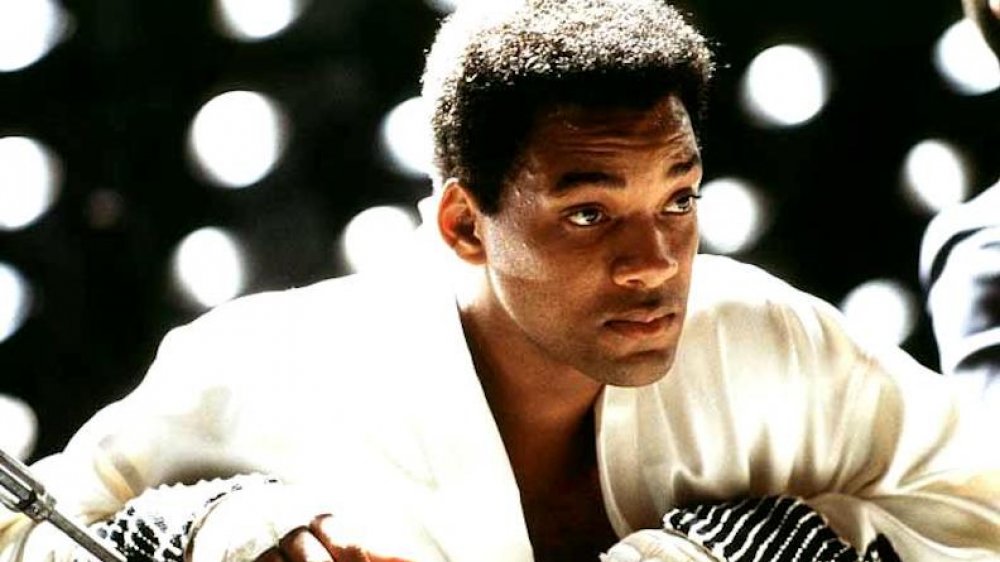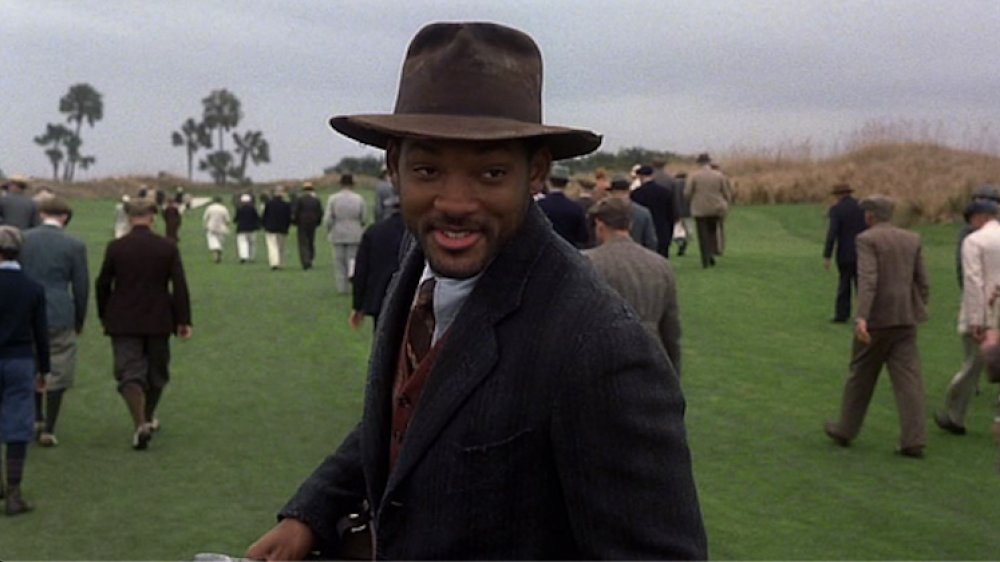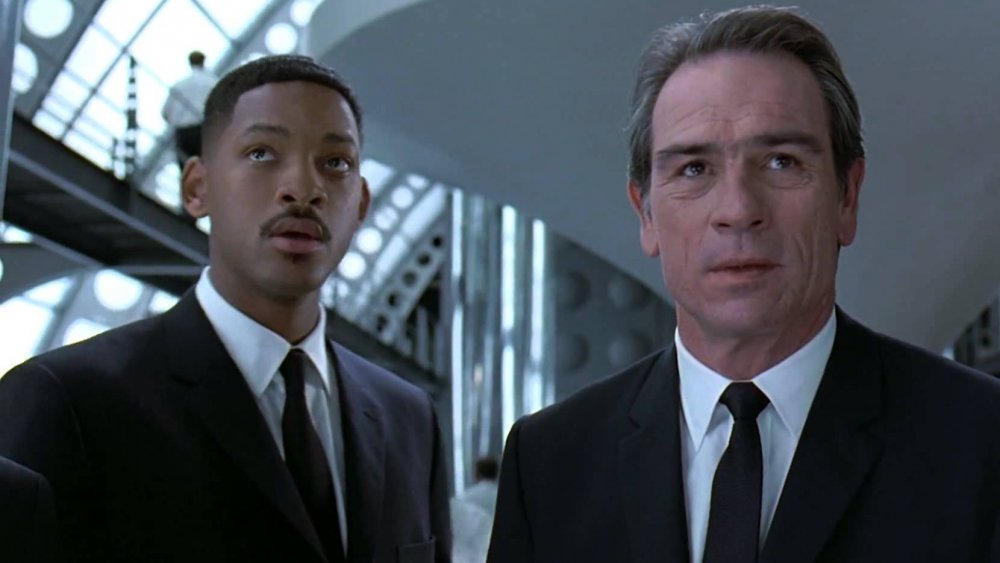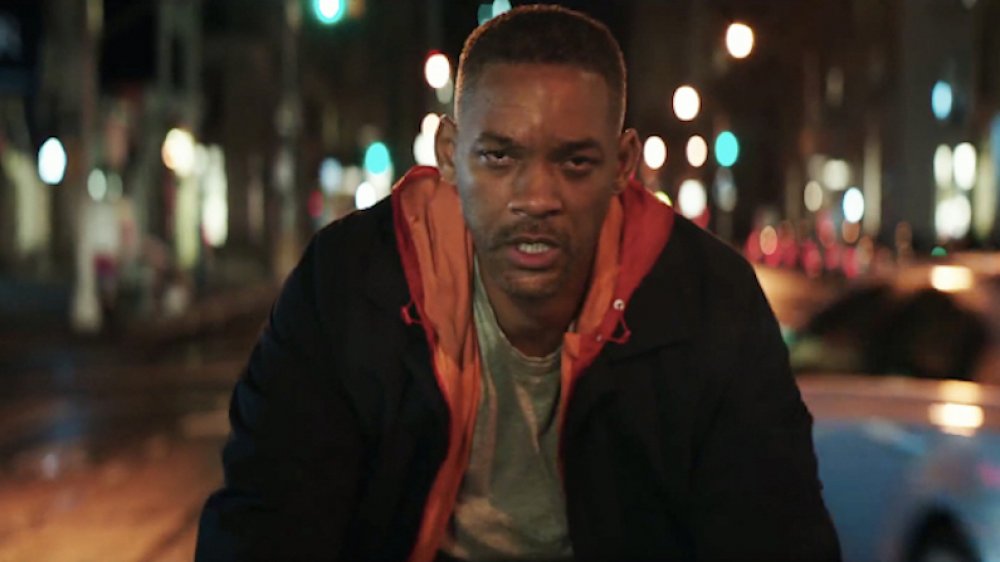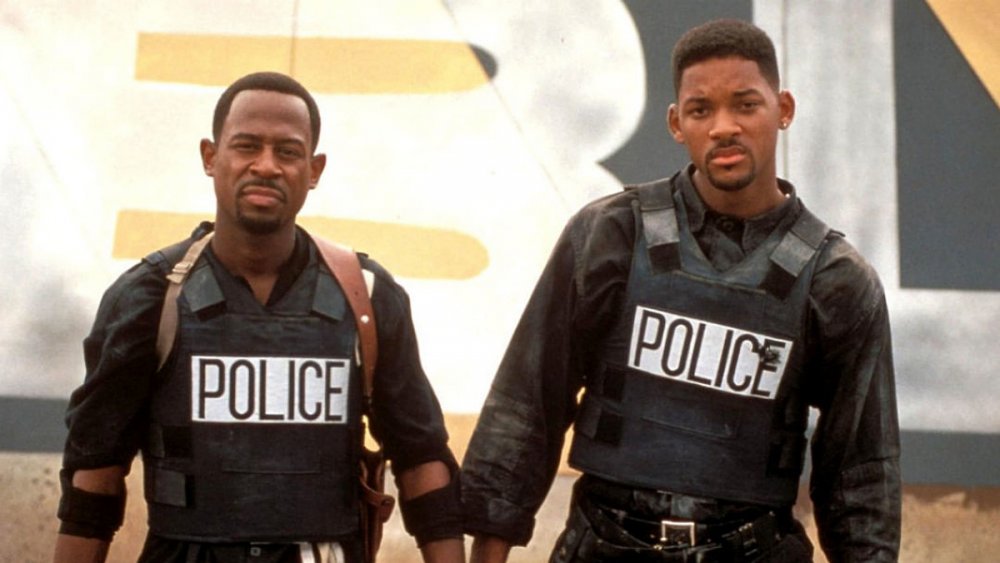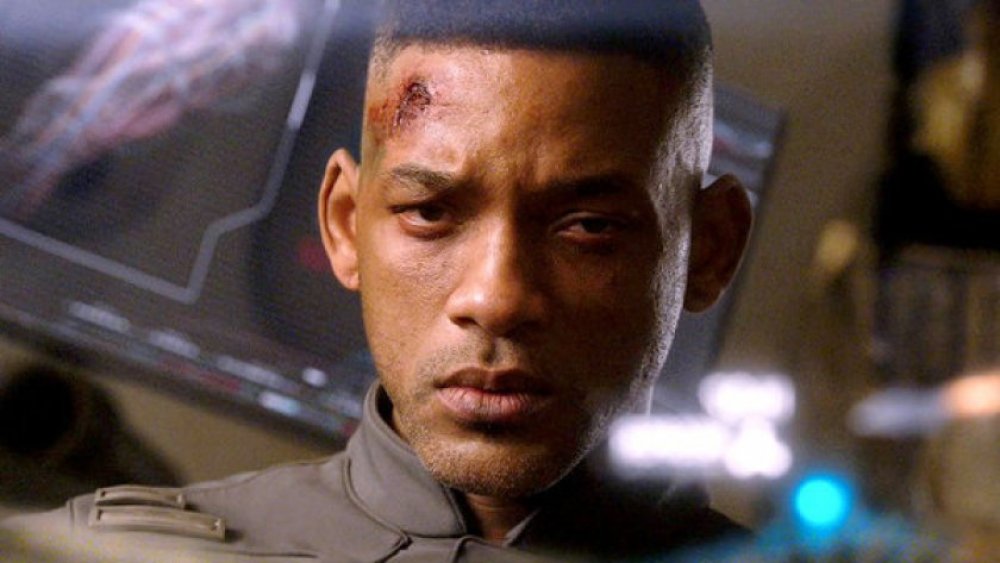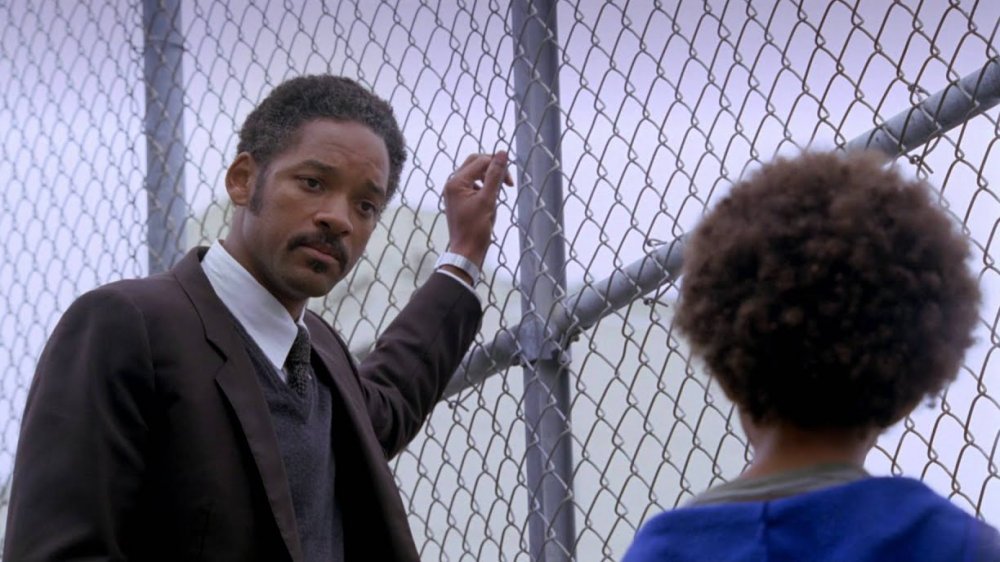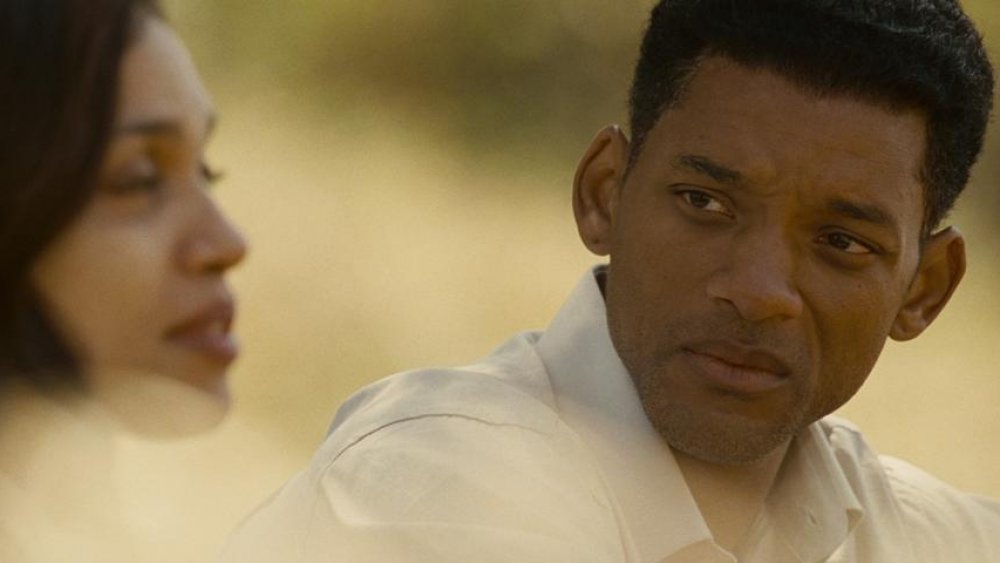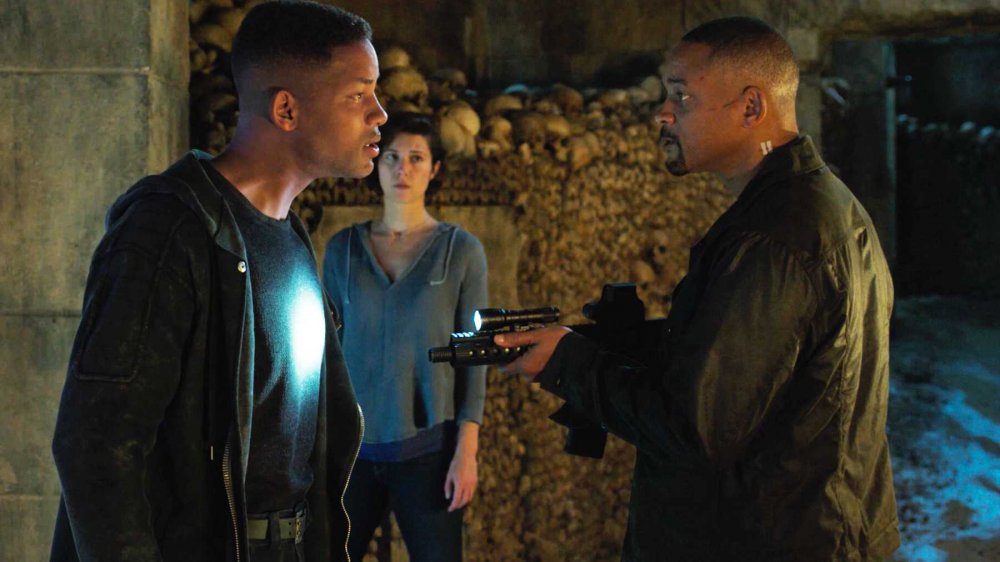Will Smith's 5 Best And 5 Worst Movie Performances
He's scored #1 hits in both the television and hip-hop arenas, but for quite some time now, Will Smith has primarily been known to the masses as one of the biggest stars in Hollywood. Over that period, Smith found himself rising to the ranks of cinema's elite — one as purely talented as he was perpetually bankable and endlessly likable.
From the mid-'90s to the early 2000s, Will Smith was one of the biggest movie stars in the world, earning as much praise for his charismatic work in bombastic action flicks and blockbuster comedies as he did for his dexterous turns in hard-hitting dramas.
As high as the peaks have been for Will Smith, there have been more than a few desolate valleys, with the actor struggling mightily to find projects that make the best use of his unique talents in recent years. In spite of his current struggles, Smith is still one of cinema's most beloved leading men. And even with a few questionable ventures in his filmography, his big-screen legacy continues to be that of a bona fide movie star with charisma to burn.
With all that in mind, we're here to take a look at Will Smith's five best — and five worst — movie performances.
Ali found Will Smith in true fighting form
When discussing the best performances of Will Smith's career, it's awfully tempting to open with one of his many unforgettable turns in certified blockbuster fare. Don't worry, we'll get to some of those endlessly entertaining flicks soon enough. But before we get to that, we're kicking things off with Smith's bravura turn in the Oscar-nominated biopic Ali because, well, it really is as solid a performance as Smith has ever delivered.
Released in the waning days of 2002 and directed by cinematic master Michael Mann, Ali depicts one particularly tumultuous decade in the life of famed heavyweight boxing legend Cassius Clay, better known as Muhammad Ali. It also found Smith in top form (and legit fighting shape) in the title role, utilizing every ounce of charm he had to portray a cultural icon whose boundless wit, in-your-face spirit, and political views could not be contained.
True to that spirit, most of the action that takes place in Ali's sprawling narrative unfolds outside the ring, with Mann and Smith painting an insightful, refreshingly unsentimental portrait of the boxer's life both in and out of the spotlight. While Smith undoubtedly brings the heat as boxing's "baaad man" in Ali's action scenes, it's the actor's introspective work outside the arena that make the film such a knockout, with Smith avoiding mere celebrity impression and focusing more on exploring the intricacies of one of modern history's most complex and unapologetically outspoken personas.
The Legend of Bagger Vance saw Will Smith indulging in some of his worst tendencies
Most filmmakers would be quick to tell you as much of a film is made in its casting as in its writing. While we can neither confirm nor deny Robert Redford's opinion on such matters, there's little question both of those elements dramatically hindered the success of his 2000 golf fantasy The Legend of Bagger Vance.
Based on Steven Pressfield's novel, The Legend of Bagger Vance follows a troubled war vet (and former golf prodigy) struggling to keep his life together in 1930s Georgia. When he finds himself entered into a prestigious tournament, he's forced to confront his demons under the tutelage of a mysterious caddy by the name of, you guessed it, Bagger Vance. From that setup, Redford and screenwriter Jeremy Leven conjure a schmaltzy, shamelessly manipulative (if beautifully photographed) little drama that uses the "golf as a metaphor for life" approach to prop up a barrage of pseudo-spiritual speechifying and dime-store mysticism.
Vacuous narrative aside, Bagger Vance really goes off the rails due to Redford's casting of Will Smith as the titular spirit guide — a character who clearly would've been better served by the stoic wisdom of a more seasoned actor (i.e. Morgan Freeman) than the beatifically upbeat and fresh-faced Smith. With that in mind, we'll simply say Smith's aw-shucks sentimentality and dewy-eyed turn as Bagger Vance make the film a genuinely cringeworthy event that would have been far better served with a more subtle approach.
Men in Black is everything we love about Will Smith movies dialed up to 11
Between the years of 1995 and 1999, Will Smith was among the true kings of Hollywood, with virtually every project he touched turning to big-screen gold. And by gold, we mean literal gold, as Smith's films essentially became money-printing machines for studios over that run, with Smith doubling down on the coinage via a string of #1 pop hits along the way. In a truly rare turn of events, some of those film's were as critically respected as they were financially fruitful. But in Smith's entire career to date, no film has satisfied on all fronts (92% Fresh, a near $600 million box office take, and a chart-topping single to boot) as well as his action-packed 1997 sci-fi comedy Men in Black.
That film, of course, found Smith portraying a mouthy, hot-shot NYPD officer who's unexpectedly recruited by Tommy Lee Jones' no-nonsense veteran to join the titular shadow agency, charged with protecting the world from alien encounters and/or invasion — both of which drive the Men in Black narrative.
Directed with epic scope and surprising intimacy by Barry Sonnenfeld, and scripted with crackerjack wit by Ed Solomon (Now You See Me), Men in Black is a film worthy of the praise it's received. So too is the scene-stealing performance of Will Smith, which teeters ever between buffoonish silliness and calculating intellect, all serving as a singularly splendid foil to Jones' endearingly stone-faced screen persona.
Collateral Beauty was a weepy disaster for Will Smith, and pretty much everyone else involved
Occasionally, a film comes along with so much A-list talent attached, it seems ticketed for smash hit status before it even shoots a scene. When those films fail, it can be difficult to figure out where the project went wrong. Will Smith has been at the center of a handful of those sorts of films over the years, but few of them have proven as baffling a failure as his soapy 2016 drama Collateral Beauty.
And in terms of talent, Collateral Beauty was absolutely stacked, with Smith appearing alongside such talents as Helen Mirren, Edward Norton, Kate WInslet, and Keira Knightley, all working with David Frankel (Band of Brothers), who was directing from a screenplay by Allan Loeb (Things We Lost in the Fire). Despite that talented crew, Collateral Beauty is sunk by a supremely gushy plot which follows a man who — after suffering a terrible loss — deals with his anguish by writing letters to Love, Time, and Death, all of whom shockingly answer in person.
Yes, that setup is every bit as "Hallmark holiday movie" as it sounds. And yes, the absurdly talented cast of the film play their parts with the same sort of overly melodramatic zeal as you'd expect in this type of venture. Smith is the biggest offender, however, spending almost the entirety of the film in a squishy-faced state of near-breakdown — which might still've been tolerable if he'd been able to make his character feel anything more than one-dimensional.
Bad Boys is the template for many of Will Smith's best-loved works
Though he's more than proven himself as a leading man capable of carrying a movie on his back, Will Smith is at his best when he's got a better than capable co-star to trade barbs with. And when it comes to trading barbs with Will Smith onscreen, there really has never been an actor quite as up to the task as Martin Lawrence was in Bad Boys.
For those who came of age in a post-'90s world, Bad Boys hit cinemas in the spring of '95 under the guidance of bombast-tastic filmmaker Michael Bay, and follows a pair of uber-hip, "shoot-first and ask no questions" detectives as they unravel a vast criminal conspiracy in Miami's underworld. One of those detectives is a squeamish family man who's always down for a fight, even if he'd usually rather cut and run. The other is a smooth-talking ladies' man with a nose for trouble and a wisecracking attitude to back it up.
Given those descriptions, it should be clear Will Smith portrayed the latter, and did so with such effortless magnetism and disarming verve, it was all but impossible to take your eyes off of him throughout the film. So good was Smith in the O.G. Bad Boys, it was almost easy to forget it was his first big-time movie, and essentially heralded his arrival as a fully formed movie star. Sadly, it also essentially signaled the end of his hit TV series The Fresh Prince of Bel-Air.
Will Smith probably couldn't have saved After Earth, but it doesn't even look like he's trying
Historically speaking, not many directors in Hollywood have had careers as up and down as M. Night Shyamalan's. The twist-loving filmmaker became a cinematic rock star after the success of 1999's The Sixth Sense, and followed it with stream of critical and box office successes. The waters got choppy for Shyamalan with 2006's divisive Lady in the Water, and remained so after embarrassing mishaps The Happening and The Last Airbender. In need of a rebound, Shyamalan hoped he'd found his ticket with his sci-fi spectacular After Earth.
He also hoped casting fellow Philadelphia native Will Smith and his teen son Jaden would provide the gusto necessary to bring his tale of a father and son stranded on an alien planet to vivid life onscreen. And yeah, maybe the Smiths would fill a few more seats based on their star power alone.
The second half of that equation came to fruition, with After Earth turning a modest profit in its theatrical release. Ticket sales aside, After Earth didn't fare well with many who paid to see it, and fared even worse with critics, few of whom were particularly kind to Smith for his work in the film. Shyamalan's ham-fisted screenplay — which was filled with tin-eared dialogue and unintentionally silly dramatic sidesteps — was also partly to blame. Script issues are one thing, but Smith still brings absolutely no energy to the film, and ends up delivering the flattest, most relentlessly unfeeling performance of his career.
The Pursuit of Happyness proved Will Smith should act in more indies
After Earth was a bust for everyone involved, but there was initially good reason to expect Will and Jaden Smith to carry the show — if only because they'd done just that in their first cinematic pairing. In fact, the duo's first co-starring experience easily ranks as one of (if not the) finest onscreen father-child performances in cinematic history.
As in After Earth, that film also finds Will playing papa to his own son. But by comparison, The Pursuit of Happyness is a film far less concerned with blockbuster bluster, and more interested in the sort of studied character work one would more frequently find in an indie drama. Quite frankly, he's so good in the film it's sort of frustrating that the elder Smith hasn't broken indie more often.
If you've yet to see The Pursuit of Happyness, it's based on the real-life story of Chris Gardner, a down on his luck salesman in 1980s San Francisco who, after losing his wife, his home, and most of his life savings to a bad investment, is forced to live on the streets with his young son while he sorts out a potentially life-changing job opportunity. Of Smith's work in the film, we'll simply say it's beautifully introspective, wickedly insightful, and achingly nuanced, and it rightfully earned the actor the second of his two Academy Award nominations.
Seven Pounds proved Will Smith needs someone to rein in his melodramatic instincts
The Pursuit of Happyness may well boast the best performance of Will Smith's entire career, so it hardly came as a surprise that the actor was eager to reunite with the man who directed the film. That chance came in 2008, when Smith and Gabriele Muccino teamed up for another small-scale character study.
Unfortunately, Seven Pounds proved a far less subtle piece of storytelling, with Muccino pushing one absurdly melodramatic device after another in service of a would-be affecting drama about a man going to extreme measures to right a horrible wrong. Strictly in terms of tone, Seven Pounds is tragically heavy-handed, with Muccino shamelessly guiding his narrative farther into melodramatic territory than most feature films would dare, and eliciting a hammy performance from Smith that is so far over the top, it may well have heralded the invention of a whole new category of over-acting.
That's not to say Seven Pounds isn't without intrigue. Quite the opposite is true, with the film daring to explore matters of grief and guilt and redemption through a wholly unique narrative construct. For about half the film, both Muccino's and Smith's "go big or go home" approach almost works. But once the endgame becomes clear, and Smith ups the ham factor to infinity, Seven Pounds becomes a textbook definition of artlessly overwrought drama. In the end, it rivals the equally misguided Collateral Beauty in terms of Hallmark-level schmaltz.
Hancock saw Will Smith make a tragically human hero out of a super-powered misanthrope
Will Smith has had his share of hits and misses, but not many of his films could legitimately be called "underrated." And yet in spite of its over $600 million box office take, that's exactly what Smith's 2008 superhero flick Hancock is. So much so that we'd wager that while many of you saw Hancock in theaters, you likely don't often even remember it exists.
Should the second part of that last statement be true, we'd urge you to revisit Hancock as soon as possible, because it's a fascinating anti-superhero gem that was years ahead of such similarly-minded fare. It's also a stylish, surprisingly incisive, occasionally hilarious little film that sports a script from Breaking Bad guru Vince Gilligan, a pair of marvelous supporting turns from Charlize Theron and Jason Bateman, and even a cameo from Smith's Ali director Michael Mann.
Smith is the star of the show, though, appearing as the titular superhero who, once beloved, has fallen out of favor as his heroics have frequently led to millions of dollars of property damage. Dejected by his fall from grace, he now spends his days in a boozy haze of self-loathing. In terms of his prior roles, Hancock is a distinct departure for Smith, who abandons his cocksure charm here in favor of mining deep wells of insecurity and soul-crushing loneliness. He pulls it off with as much guile and style as any of his best-loved performances, and elevates Hancock to the level of unheralded classic in the process.
Gemini Man is an acting tragedy in two parts, and they both feature Will Smith
On paper, the 2019 sci-fi thriller Gemini Man is another one of those movies that had the look of can't-miss blockbuster. Not only did Gemini Man boast a screenplay co-written by Game of Thrones boss David Benioff, it also landed two-time Best Director winner Ang Lee (Brokeback Mountain, Life of Pi), and sports a beyond impressive cast of supporting players in Mary Elizabeth Winstead (Birds of Prey), Clive Owen (Children of Men), and Benedict Wong (Doctor Strange).
Will Smith was, naturally, Gemini Man's proverbial ace in the hole, however, with everyone involved banking on the star's ability to deliver the goods in not just one but two leading roles. For those who didn't see Gemini Man (and judging from the film's less than blockbuster box office, that's most of you), the dual-leads bit might be a little confusing, so we'll go ahead and tell you the film follows the story of an aging hitman who's forced to face off against a clone of his younger self.
As is the rage these days, the "younger self" effect was achieved with a mix of CGI and de-aging technologies. It's often impressive to look at, but Smith brings zero emotion to the table as his young clone, and brings even less to his role as his older self. In turn, he conjures not one but two painfully stilted, one-note performances to a high-concept film that probably would've been at least watchable had he been good in either one.
